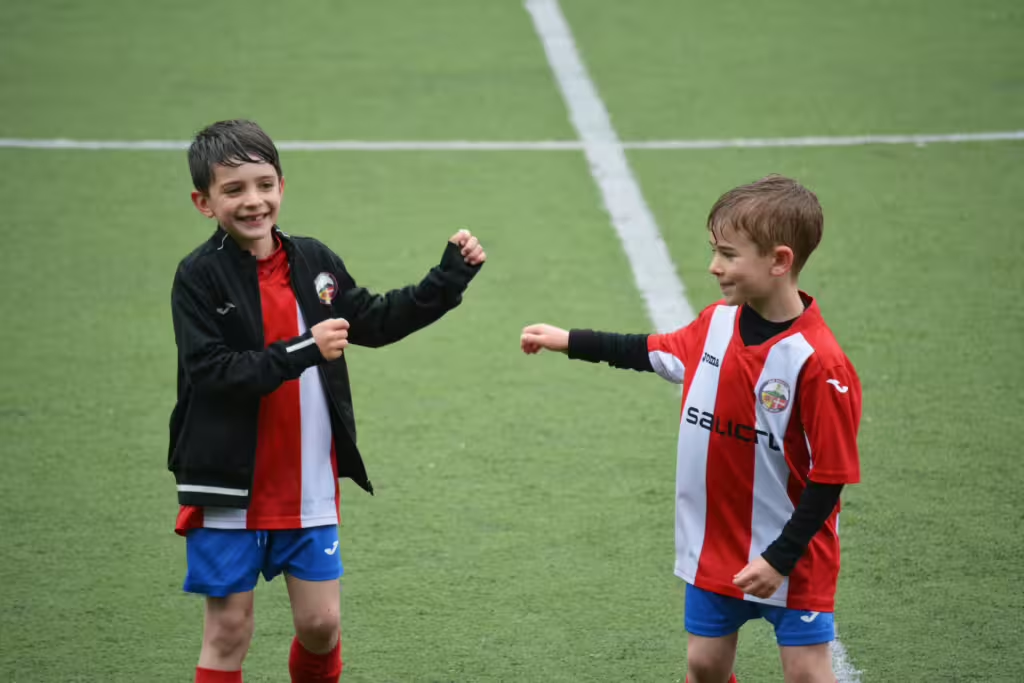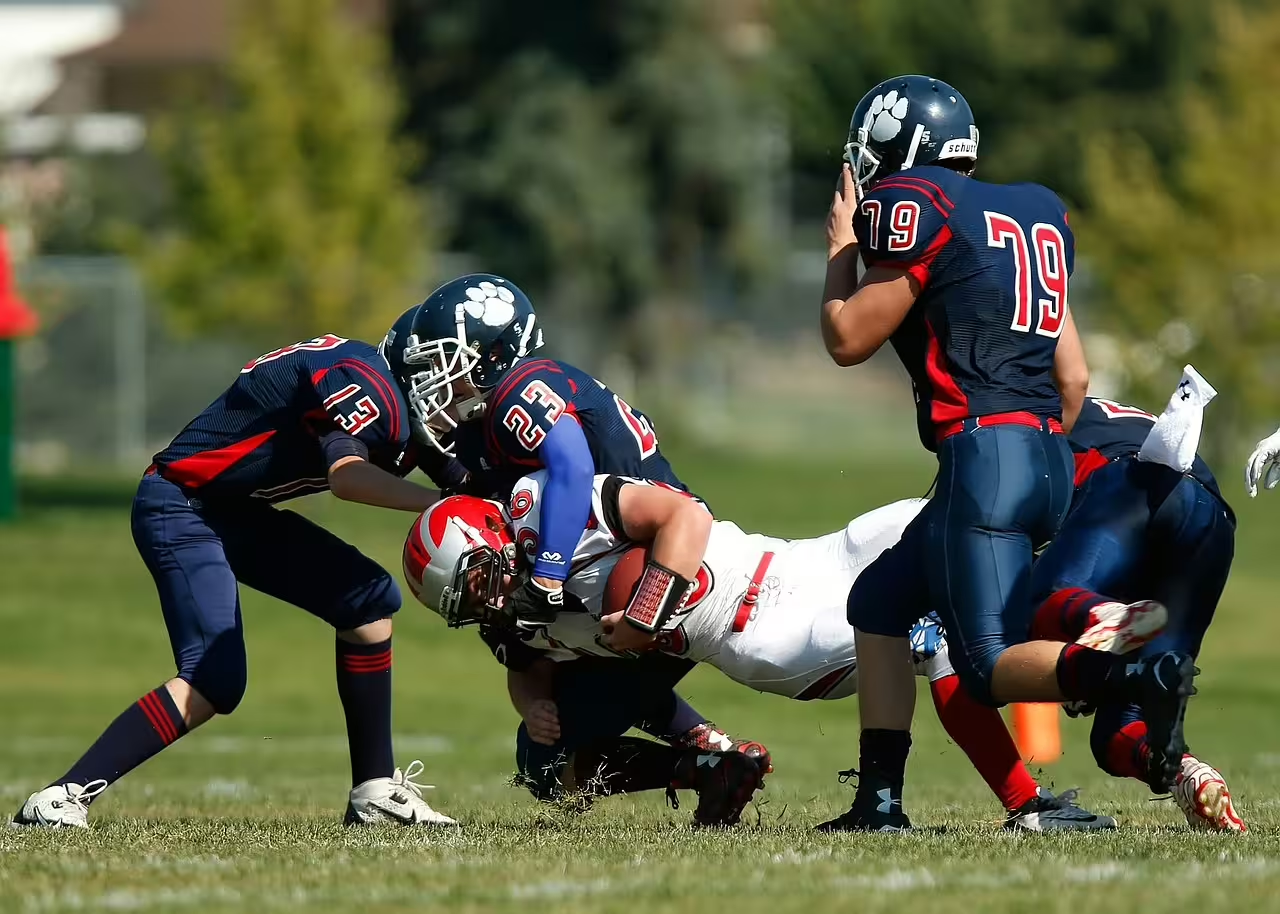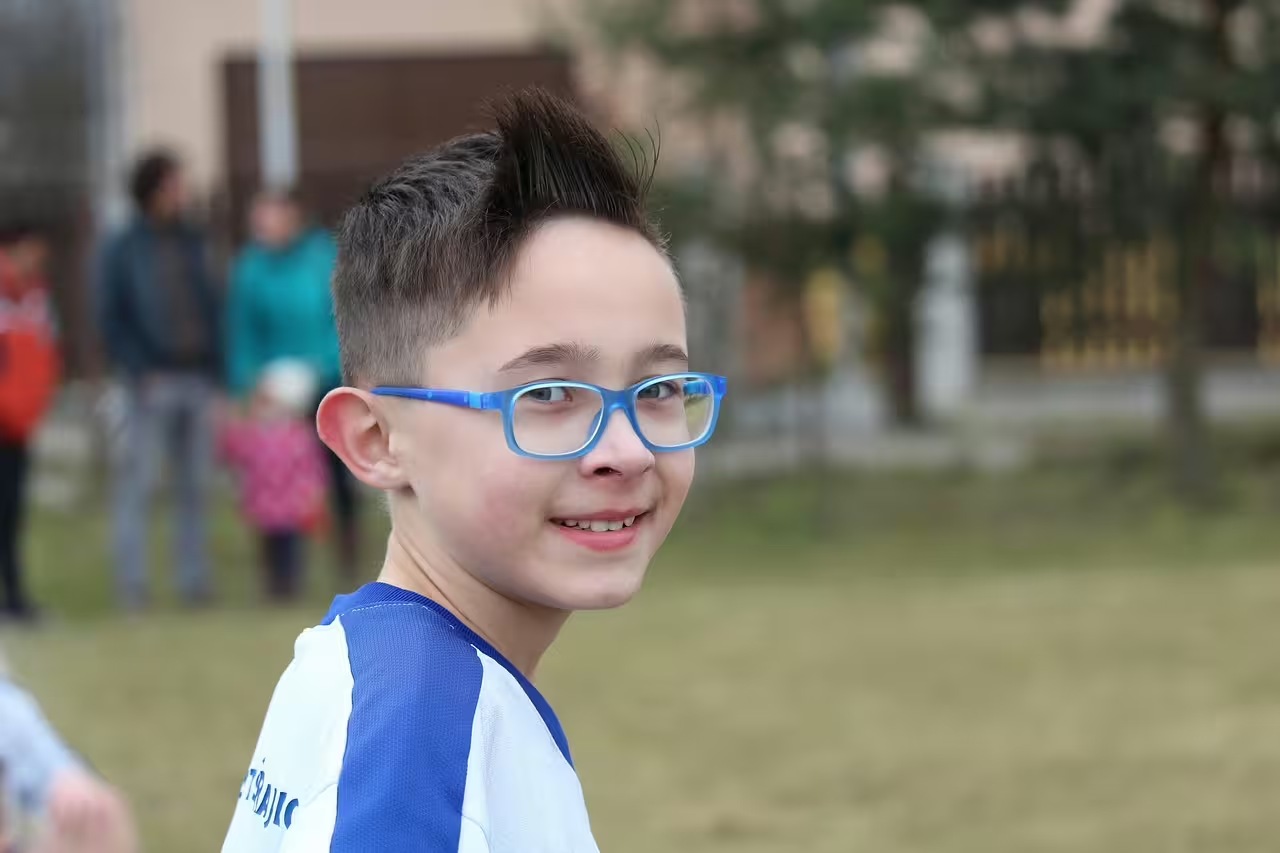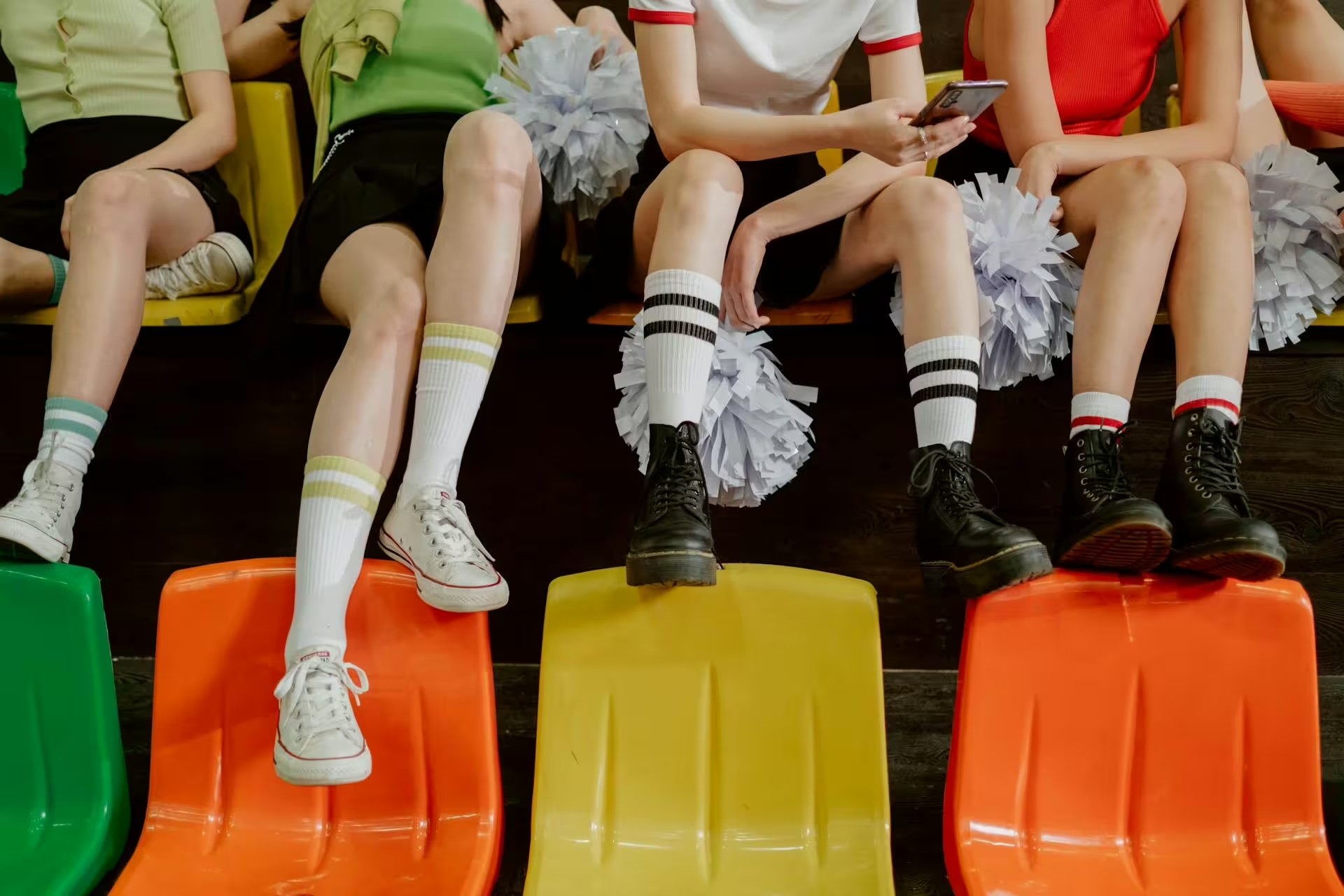For many of us, the friends we made in our formative years are some of the strongest personal connections in our lives. Some of us have even managed to keep in touch with those friends over the years, and have been fortunate enough to have them present for other life milestones. This is why making new friends is such an important part of growing up. Friendships are a key part of how children learn social skills, develop confidence, and help create a sense of belonging. Many children find their first new friend on the sports field. Those friendships may even become strengthened when kids participate in sports together.
Whether it’s joining a soccer team, playing basketball at recess, or attending a gymnastics class, sports provide kids with endless opportunities to connect with their peers. In team sports and even when playing individual sports, kids learn to work together and commiserate over shared triumphs and tragedies, all while forming bonds that have the potential to last a lifetime.
In this article, we will explore how sports can help children make new friends, improve social skills, and enjoy the benefits of teamwork and collaboration.
Sports Bring People Together
Sports have always been something of a social activity. Ever since the First Olympics, people have gotten together to view or play games of sport. This is also why sports are so effective at helping kids make friends; they bring people together. For kids, sports provide a fun, structured environment, both of which are essentially why parents seek to put their children in sports in the first place. Recreational sports and classes offer a natural space for young athletes to interact with others who share their interests.
Shared Interest in Sports
Kids who participate in a sport share a commonality of interest with their teammates and fellow players. Girls on the same gymnastics squad or children in the same karate class share the same common interests and goals. This shared passion serves as a foundation for building strong friendships. Kids form natural bonds when everyone is working toward a common goal. That goal could be learning new skills or winning a game together, but the result is the same. Similarly, when kids talk about the sport, discuss their favorite players, or strategize for their next game, this sparks conversations and forms connections.
Breaking the Ice
Some children are shy, however, and might not warm up to other kids on the team right away. Fortunately, sports provide a built-in icebreaker for bashful children or those who are unsure of how to approach new peers. Games and competitions serve as common ground for budding athletes, so there’s no need to worry about coming up with the perfect conversation starter. Kids can just talk about the upcoming contest, discuss tactics, or share in their collective excitement. Indeed, the simple act of participating in drills, practices, or friendly competitions, can place children in situations where interaction with others is a natural occurrence.
Teamwork Fosters Friendship
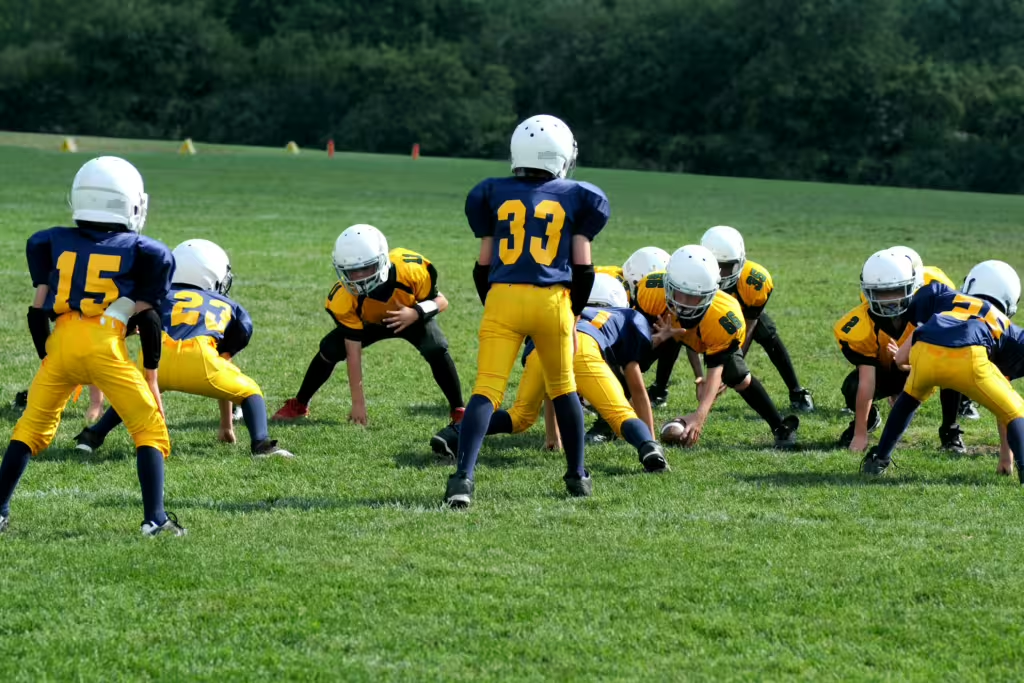
Team sports, in particular, are a powerful means for children to learn about cooperation, communication, and friendship. Kids in a team setting must work together to achieve a common goal. Those goals range from completing a relay race in track and field to, scoring a goal in soccer, to making a basket in basketball. No matter the situation, this collaboration creates myriad opportunities for new friendships to grow and thrive.
Relying on Each Other
Kids who play team sports inevitably learn to rely on one another. Team sports encourage communication and cooperation. Young athletes have to work together to master new skills and reach a common goal. It doesn’t matter if that goal is a literal one, on their opponents’ side of the field, or a shared goal of success, because even the act of learning to rely on one’s teammates is a valuable skill. Whether passing the ball to a friend during a soccer game or coordinating a defensive strategy in basketball, the success of the team depends on each player’s unique contributions. This sense of reliance fosters trust and teamwork, two critical elements of friendship.
These shared experiences tach kids that they need to support and rely on one another in order to succeed. This doesn’t always mean during play either. Teammates do so much more than help one another make runs. They cheer each other on during games, celebrate wins together, and console each other after losses. Building trust and understanding through shared triumphs can help children build a base of essential components of strong friendships.
Working Through Challenges Together
Playing sports may look fun, but that doesn’t mean it’s easy. Young athletes face challenges, including tough opponents, missed opportunities, or even internal conflicts, but they often face them as a team. When children work through these difficulties together, they develop a host of problem-solving and coping mechanisms. At the same time, these challenges serve to strengthen their friendships. Facing adversity as a team on the sports field teaches young athletes that they can lean on each other for support, both on and off the field.
Building Social Skills Through Sports
Sports are a fantastic way for young children to develop some essential social skills that will serve them in other areas of their lives. By engaging in sports, children unwittingly practice communication, cooperation, empathy, and conflict resolution, all while having fun and staying active.
Communication
Effective communication is a crucial element in every area of a young person’s life, but it’s particularly important in team sports. Whether it’s calling for a pass in a soccer game, discussing strategies with teammates, or giving high-fives after a great play, kids learn different ways to communicate on a number of different subjects throughout a season. On the sports field, children learn how to express themselves clearly while also learning the importance of listening to others. This, in turn, helps them to build confidence in their own voice. They learn to speak up for themselves or their teammates when necessary. More importantly, they learn the value of giving and receiving feedback.
Cooperation
Nearly every social interaction that a child engages in requires cooperation, whether they are working together on a class project, piling up pillows to build a fort in the living room, or helping move the basketball across the court. These skills are important in all their social interactions at school, at home, and in the arena. In many ways, the fact that sports require cooperation is pretty elementary, but this simply means that sports are a tried-and-true method for kids to learn the value of working as a group. Young athletes must coordinate their actions with others, cooperating as the learn to be flexible, adapt to different roles, and share responsibilities.
Empathy
We may not always see it this way, but sports actually teach children far more empathy than we give them credit for. During competition, kids are placed in situations where they must understand and respect the feelings of others. Sports give children many opportunities to practice empathy, either by offering a kind word or a helping hand. This strengthens the bonds of friendship and helps them understand the importance of being there when their friends need them.
Think about it, if a player misses a shot or loses a game, their teammates can go one of two ways. They can either learn to offer support and encouragement or they can levy criticism at the discouraged teammate. We would hope that they choose the former, but it’s often up to coaches and parents to help them understanding how others feel in competitive or challenging situations.
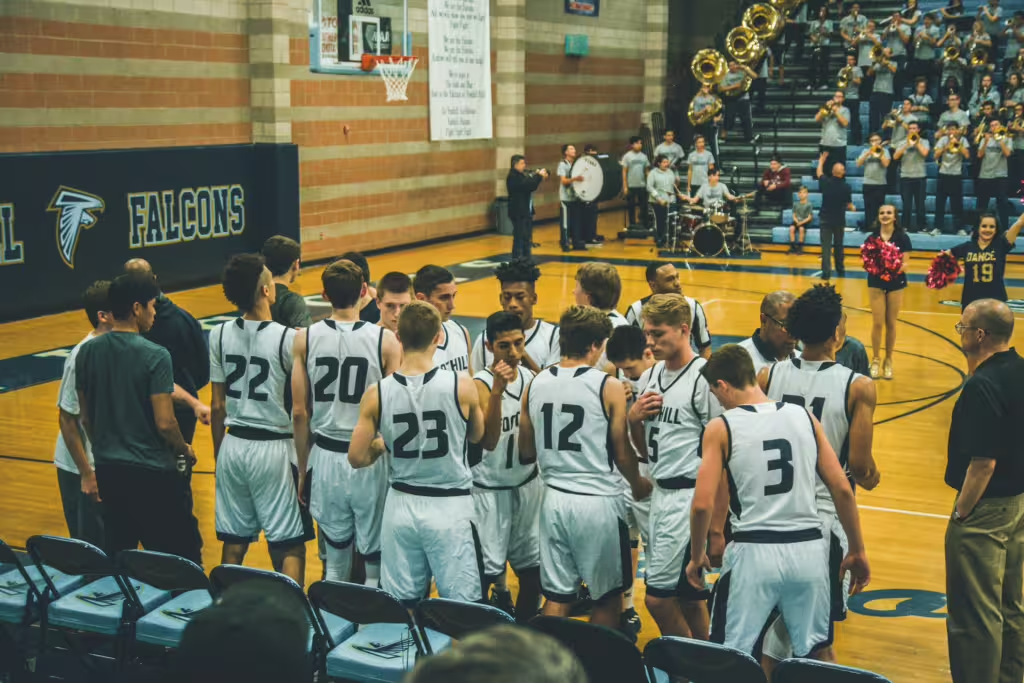
Conflict Resolution
Conflict resolution is as much a part of sports as the game itself. We all know that disagreements can arise on the sports field, whether it’s over a rule, a missed play, or the outcome of a game. As a result, young athletes are taught how to navigate these situations calmly and fairly. Coaches and parents can help in this area as well by teaching younger players to compromise, apologize, or find a solution that works for everyone. Learning to react properly to small disagreements during sports will help children build the foundation for handling bigger conflicts in life.
Learning to Be a Good Sport
Good sportsmanship is an essential part of any athletic activity, and it involves the ability to win or lose with grace. This respect, humility, and kindness towards one another is an essential component in building strong friendships, but it isn’t always easy for young children to learn. It’s one of the less obvious values that can only be taught by experience. Encouraging ones teammates is a good stepping stone to this good sportsmanship, however, and it helps children stay positive from the get-go, rather than try to rise above their base notions of disappointment, jealousy, or anger.
Sports Offer Diverse Social Opportunities
One of the best things about kids’ sports is that it offers a wide range of social opportunities for children to make new friends. Sports accommodate every personality type, skill level, and ethnicity. Even kids with disabilities can join in the sports fun, thus adding to the overall diversity that children become exposed to simply by playing sports.
Team Sports: Building Bonds Through Cooperation
In team sports like soccer, basketball, or hockey, children are able to interact with a large group of peers. Teammates practice together, play games, and work together to reach shared goals. In all these instances, children are afforded the opportunity to grow closer, bond over shared experiences, and learn about each other’s differences. Particularly social children thrive in sports situations. They gravitate towards the camaraderie and collective spirit of team sports. Yet those children can help draw shy kids out of their shell and introduce them to the inherent joy of community.
Sports and Social Inclusion
In the same vein, kids who might gave difficulty making friends friends in other settings might find themselves thriving on the sports field. Bashful kids, those who are new to a school, and those who have special needs could end up forming unique connections in a supportive, safe environment where they can meet and learn about others like themselves. On the sports field, they may find that they have more in common then they realize.
A Sense of Belonging
Children who struggle with social interactions or feel left out, might similarly find a sense of identity and inclusion among their new teammates. Sports offer a place where all children can belong. Every player has a role to play, whether they’re scoring the winning goal, supporting their teammates from the sidelines, or offering advice during practice. This newfound sense of belonging helps young athletes build new friendships and feel valued.
Opportunities for All
Many sports programs are designed to be inclusive, which means they offer a host of opportunities for athletes of all abilities and backgrounds to participate. Adaptive sports, for example, allow children with disabilities to engage in the same or similar athletic activities as their peers. This affords these kids the opportunity to make friends in an environment that accommodates their needs.
Recreational leagues, school teams, and community programs tend to welcome players of all skill levels, as well. These programs are essential and ensure that every child has a chance to participate and make new friends, regardless of their previous experience with the sport.
Cultured Athlete Says…
The friends we make on the sports field may one day join us at the altar or help us through our toughest times. This is why it’s so important to introduce our children to sports from an early age. Playing sports is a powerful way for kids to make new friends while learning valuable social skills. Sports teach children teamwork, cooperation, communication, and empathy for one another. These valuable lessons help young athletes develop strong friendships that can last their entire lives. It doesn’t matter if it’s a team sport, either. Whether playing on a team, participating in individual sports, or joining a recreational league, children who play sports are afforded endless opportunities to connect with others. By encouraging our children to participate in sports, we are helping them to form lasting friendships and develop social skills that will serve them throughout their lives.
Discover more from CulturedAthlete
Subscribe to get the latest posts sent to your email.

